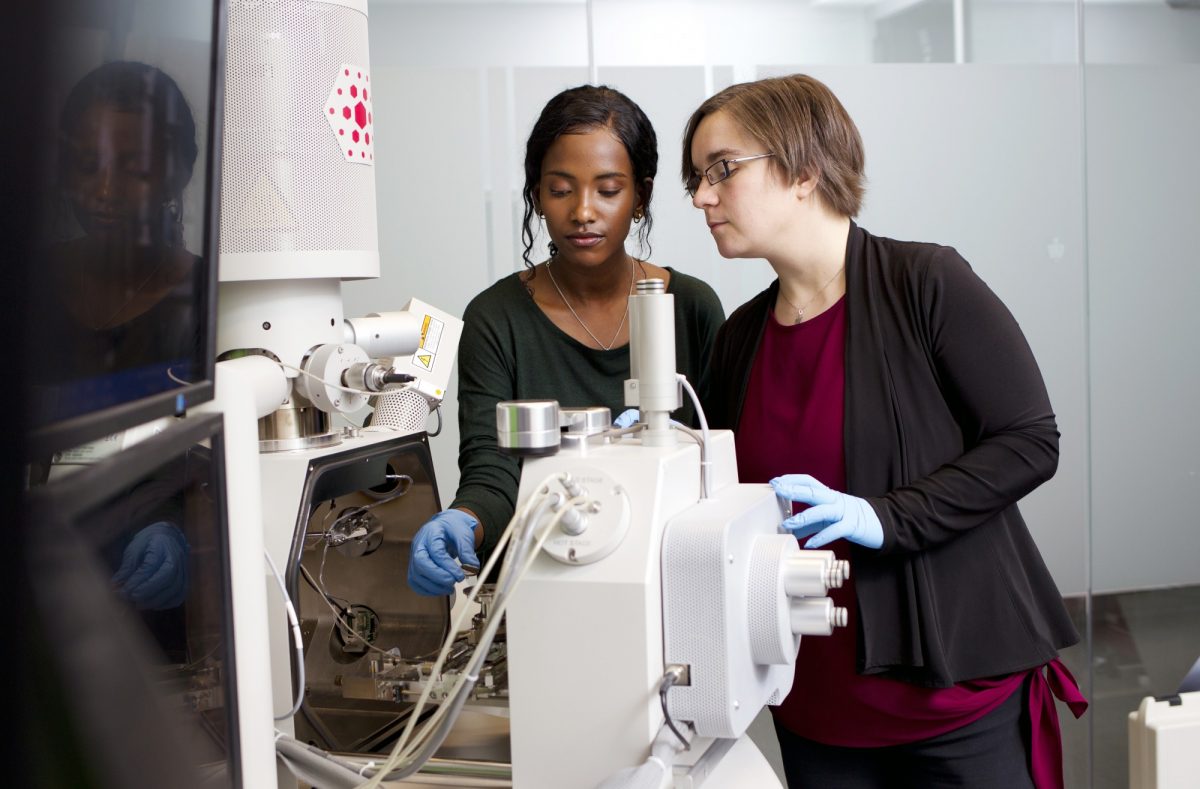
Recent UM research findings suggest gender bias remains in NSE professions across Canada
EDI and the sciences
A UM research team recently co-published research that suggests gender bias continues to be a determining factor for those within the natural sciences and engineering (NSE) professions.
The findings were the results of a Faculty Workplace Climate Survey administered to approximately 700 NSE professors from 13 Canadian universities, research conducted by UM researchers Jennifer Dengate, Director of the Centre for Social Science Research and Policy; Annemieke Farenhorst, Associate Vice-President (Research); and Tracey Peter, Associate Vice-Provost (Academic Affairs); alongside Mt. St. Vincent professor Tamara Franz-Odendaal.
Analysis of the survey data collected in 2017-2018 found that gender remains key to predicting the types of experiences NSE professors will encounter during their career path. Specifically, women are significantly more likely than their male colleagues to experience workplace harassment, discrimination and general incivility. Also, students are more likely to seek support from female than male professors when feeling stress or experience harassment. In addition, women devote more time than their male peers to service work.
EDI and the sciences
The teams’ research on equity, diversity and inclusion (EDI) in the NSE fields was inspired by Dr. Margaret-Ann Armour, who they call the “foremother of equity, diversity, and inclusion in the natural sciences in Canada.”
Their paper, entitled “‘Shining Armour‘: what Margaret-Ann Armour taught us about equity, diversity, and inclusion and mentorship in the natural sciences” was published in the Canadian Journal of Chemistry, and received recognition as one of the 2021 Editor’s Choice. It was also highlighted by Canadian Science Publishing in honouring Dr. Margaret Ann-Armour.
A chemistry professor by vocation, Dr. Margaret-Ann Armour dedicated her 40-year career to gender inclusivity in Canadian science, technology, engineering and math (STEM) education. In 1982, she founded WISEST (Women in Scholarship, Engineering, Science, and Technology), a cornerstone for STEM education and gender inclusivity in Canada. Armour championed mentorship and outreach, and challenged gender-bias in her field.
According to the team’s paper, Dr. Margaret-Ann Armour “emphasized that, to make progress in natural sciences and engineering fields, we also need to make advancements in workplace EDI. Dr. Armour was among the first to recognize the need to fix the system and not women.”
Challenges faced by women science faculty
The group’s research findings support Dr. Amour’s position.
One of the researchers, Annemieke Farenhorst, notes that, “Tri-Council and other funding initiatives place an increasing importance on fully integrating EDI as part of the research enterprise in Canada, for example because research teams that are more diverse and inclusive tend to be more successful in research innovation and knowledge translation.”
“The key findings from the survey speak to some of the gendered challenges that women faculty members in Canada still face, and our data also showed evidence that BIPOC male faculty continue to experience more harassment and discrimination than white male faculty,” she adds.
“We need address the obvious systemic barriers that some academics and also students continue to face within Canadian Universities. We need to create a space were everyone can feel safe and thrive.”
Watch the video about Dr. Margaret-Ann Armour, created to supplement the published paper. It was produced by Sheryl Peters and Angela Chalmers in collaboration with Dr. Farenhorst, the Prairie NSERC Chair for Women in Science and Engineering (2011–2020).
Read the paper “‘Shining Armour‘: what Margaret-Ann Armour taught us about equity, diversity, and inclusion and mentorship in the natural sciences”
Research at the University of Manitoba is partially supported by funding from the Government of Canada Research Support Fund.






